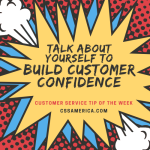Every year, professional sports teams lose season ticket holders. These season ticket holders exit the organization because of a myriad of reasons. With the economy like it has been over the last 18 months in particular, professional sports teams are losing season ticket holders at an alarming rate. Many pro sports organizations deal with these issues by ramping up their advertising and marketing efforts. Many others chalk up the losses to a bad economy, but few of these organizations really have a strategy targeted at these former season ticket holders.
These ticketholders have left; so what is your strategy post-exit?
Some of the best sales prospects your organization can have are former customers. You already have a great deal of intelligence on your former customers. You already know their likes and dislikes, their preferences, what’s most important to them, key demographic information, and their purchase history. Well, at least you should know all this information.
The two things you don’t know are two pieces of information that can make you a lot of money very quickly. The first piece of information is the specific reason or reasons why they left. This is where you avoid making broad assumptions about the season ticket holder base, and you look specifically at each one to determine why they left. You would probably be shocked to find out why the individual season ticket holders left even though you might be able to guess broadly about the major reasons why season ticket holders left. By knowing why they left, it helps in future conversations to help get them back.
The second piece of information that’s vital is their likelihood of future interest in your products and services, or as pro sports teams focus, on tickets. You have to know what level of interest they have and in what type of individual game ticket, a mini plan, or some form of full season plan. Without this information, you don’t know enough to have an efficient sales pitch with a former client.
So what is your post-exit strategy?
With our pro sports clients, it includes conducting Exit Interviews in a soft form with the season ticket holders to gather intelligence about these key pieces of information. And then to use the results of that research to both apply to current season ticket holders to best retain them but also — in the hopes of increasing revenue — to make targeted sales pitches at the former season ticket holders.
Your lost season ticket holder is one of your greatest sources of future revenue. Have a strategy for getting them back.
Interested in improving your company’s customer service? See more information at: http://www.cssamerica.com/





















